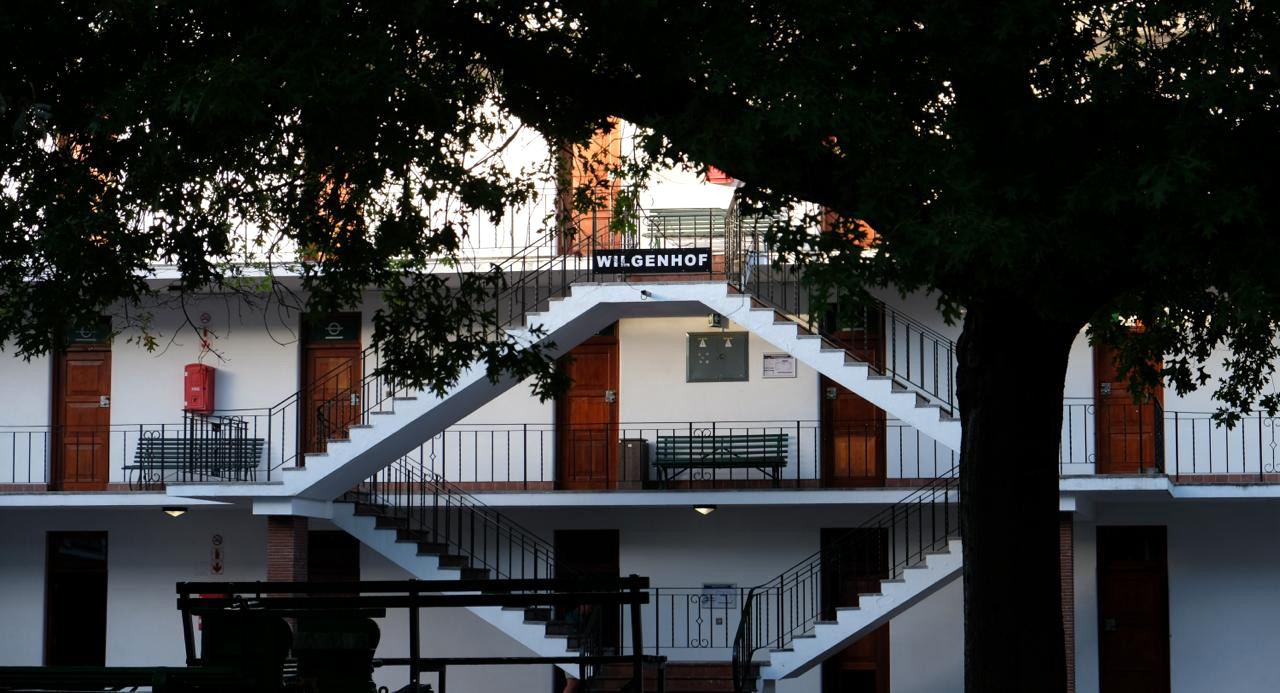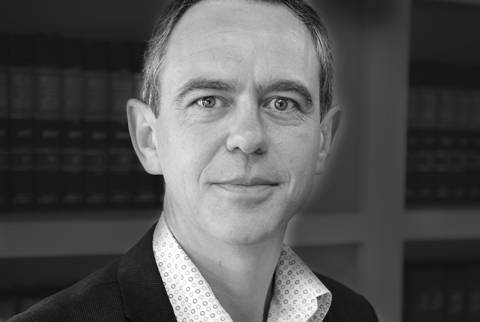In the wake of a decision by the Council of Stellenbosch University to close its Wilgenhof Men’s Residence for one year in an attempt to bring an end to humiliating and exclusionary practices at the institution, current and former residents of Wilgenhof launched high court applications to interdict or overturn the council’s decision.
A decision by the Council of the University of Cape Town to endorse two UCT Senate resolutions on Israel’s genocide in Gaza is similarly being challenged in the high court, in this instance by Professor Adam Mendelsohn. His application also seeks to review and set aside the council’s decision.
These court challenges are classic instances of “lawfare”, part of a broader trend by litigants with deep pockets to ask the courts to review and set aside decisions with a strong political, social or ethical dimension, taken by a legislature or members of the executive, or by governing bodies of public institutions.
This type of lawfare seeks to turn disputes about history, power, identity, transformation and belonging and (in these cases), also about the appropriate role and function of a university in a neoliberal society, into disputes about procedures or the purpose of the decision (in the form of rationality reviews).
Even when the legal arguments in such lawfare cases are weak or absurd, the litigation itself can be of value to litigants who seek to utilise the court hearings to air a litany of real or imagined grievances to cast the litigants and those they represent as vulnerable victims.
In such cases, the court process can be used as a tool for political mobilisation (Jacob Zuma and his lawyers excel at this), as a fundraising mechanism (AfriForum, for example, often uses litigation as part of its fundraising strategy), or to embroil an opponent in long and costly litigation and to delay the implementation of a decision (as with the cases under discussion).
I have come to think of these cases (only somewhat tongue in cheek) as part of the Dali-fication (or perhaps the Mpofu-fication) of politics and ethics, and — in the cases under discussion — of universities in South Africa.
It is striking that these challenges have been launched by people with access to enormous resources and at least some political clout, who represent constituencies that see themselves as “minorities” which are under attack because of who they are.
They have turned to the courts to reverse decisions taken after their constituencies lost the argument within their respective universities and seem to conflate questions about the correctness of these decisions with the legal question about whether the decisions were rational.
Lives lived inward
It is striking that in both cases, some members of the aggrieved constituencies seem to find the decisions incomprehensible, even impossible to imagine, which may also say something about the insularity of lives lived inwards, with one’s face turned towards one’s own “group” and thus away from the Other, so to speak.
These cases, particularly the ones involving Wilgenhof, also interest me because they raise questions about the appropriate role and function of a university in a (neoliberal) heterogeneous society like South Africa.
What are universities for and who should they serve? Should and can universities be more than vocational training centres which produce research in service of the market economy? Should a university be run like a business, with one eye on the bottom line and the other on keeping its wealthy alumni and other donors happy?
These are difficult questions with no easy answers, or perhaps questions with several seemingly convincing but contradictory answers, and I make no attempt to do so here. Instead, I try to explain why I think the litigants have an impoverished and misguided view of what universities are and ought to be.
The first thing to note is that public universities in South Africa are public institutions which receive large sums of public funding from the state. Like all other public institutions funded from the public purse, they are accountable for how they use and manage these public funds. In addition, the national government is responsible for the formulation and implementation of the higher education policy, which creates a constraining framework within which public universities are required to operate.
At the same time, public universities enjoy institutional autonomy, which means they have the authority to govern themselves, and have (or ought to have) the final say over their academic programme. University autonomy is pivotal for the safeguarding of academic freedom and must be jealously guarded.
However, these universities remain public institutions with an obligation to serve the public good (however one defines this). Public universities do not “belong” to any specific group, but serve society as a whole and should aim to become places where all students can “belong”, by which I mean flourish and succeed. (This is why the retention of Afrikaans as the main language of instruction at Stellenbosch University is, as a practical matter, clearly untenable in the long run).
The litigants in the Wilgenhof cases do not seem to understand or accept this fact, seemingly viewing the place as a quasi-private entity which they have every right to manage and control.
Exclusionary effect
Many Wilgenhof sympathisers refuse to consider, let alone accept, that the culture of the residence and its “revered” traditions have an exclusionary effect and may discriminate indirectly on the grounds of race.
Like the proverbial fish that remains unaware of being wet, they are unaware that these traditions are “culturally embedded in the white, male, Afrikaans culture and history”, and continue to reflect, at least in part, a worldview and way of being in the world that many white people (but far fewer black people) would find familiar or even comforting.
That so many believe these rituals of power and the (big and small) humiliations they cause are worth preserving because they help to foster a group identity, and have not considered the possibility that enforcing group loyalty at a university might be a recipe for intellectual mediocrity, is difficult to fathom.
As the panel of experts investigating abuses at Wilgenhof pointed out, its culture did encourage critical thinking, but never at the expense of the group.
The rules were clear: if you respected the strict hierarchy (based on seniority) among fellow residents, remained loyal to the group and did not do anything perceived to threaten the group, you would be welcomed into the Wilgenhof brotherhood with open arms. If you did not, you would have to leave.
While such an attitude might be normal in a religious cult, it is not compatible with a public institution funded by the state.
This approach is also a recipe for mediocrity and has little place at an institution of higher learning aspiring to be any more than a vocational training college. The Wilgenhof approach will “weed out” the true oddballs and weirdos, those who might have wanted to have sex with “one of the boys”, but would rather die than be one, the ones who lack a certain hard-headed resilience or are easily bullied, and those who cannot hide their contempt for the arbitrary rules and petty cruelties of the system and the people who enforce it.
During my time in Wilgenhof, this resulted in most of the truly interesting people leaving at the end of their first year. Some of us who lacked the courage, resources or imagination stuck it out for two. Of course, the dullards who always came to borrow my class notes the day before the exam tended to stay on for five years or more.
So while I can’t provide you with pat answers to my questions about universities, I am pretty sure the ideal university is not a place where people are marginalised and excluded because of their race or because they are not the kind of people who thrive in a system that values group identity and loyalty to the collective above all else.
In my view, universities (and the academics working there) also serve the public good by engaging critically with socioeconomic problems and other injustices they see in the world around them.
While they do not “belong” to a specific “group”, universities are embedded in communities and should be responsive to them. I am therefore not a fan of the notion that universities should keep the outside world at bay to allow academics the space and freedom to develop original ideas and discover new things without having to worry about their role and the role of their university in addressing the wrongs and injustices in their institutions and the broader world.
Vested interests
But as these cases again demonstrate, managing the relationship between a university and the “community” it is part of (specifically the community of alumni and donors) is not a simple matter.
A university’s alumni and donors can use their power and influence to protect their vested interests, to hinder needed change, or to stop it from saying or doing anything about pressing moral/political issues. This becomes highly problematic where the alumni profile of a university remains disproportionately white and resistant to transformation or other challenges to the status quo.
The report of the panel of experts tasked to investigate the Wilgenhof scandal specifically highlights the destructive role played over the years by the Wilgenhof Bond (the old boys’ network) to protect the institution against “interference” by the university, in some cases to ensure the continuation of humiliating rituals and practices at the residence. It is therefore not surprising that the Bond is running a spirited public campaign alongside its court action to stop the university from implementing the council’s decision.
Threats that alumni and other donors will withdraw their financial support to the universities have also played a prominent role in both cases, with the legal argument in the Israel matter centring on the alleged failure of the UCT Council to consider the financial implications of its decision for the university.
These arguments have probably gained more traction in recent years as the effect of deep cuts in the higher education budget on universities becomes clear. This poses an enormous challenge for universities which recognise that they must ensure that their institutions become more diverse and welcoming (in terms of staff and students) and who understand that this change is needed to equip their institutions to excel.
Given this dynamic, I was pleasantly surprised by the decisions of the councils of both universities, moderate and careful as these decisions were. I was going to claim that these decisions may suggest that financial threats like these may not always be decisive and that this should be read as a good sign.
However, I am not sure this is necessarily correct, as I suspect the decisions were made because the councils shared my view that these decisions would not lead to the financial ruin of UCT or Stellenbosch.
To be honest, I am not sure I would have supported either decision in the face of compelling evidence that it would lead to a catastrophic loss of hundreds of millions of rands in subsidies, donations and grants for either university.
Perhaps the lesson here is that universities face threats to their autonomy and their ability to do what universities should do, not only from the state but also from the market.
But while there are many ways to think about what universities are for and how they should function, I am pretty sure there would be reason to worry about the health of any university whose council, as a matter of course, allowed specific pressure groups with significant political influence or deep pockets to dictate how they should deal with a scandal-ridden residence. or whether they are permitted to take a stand against one of the defining moral issues of our generation.
Luckily there is little chance that the courts considering the respective lawfare cases against the two university councils will aid and abet the litigants in perpetrating their mischief. DM





